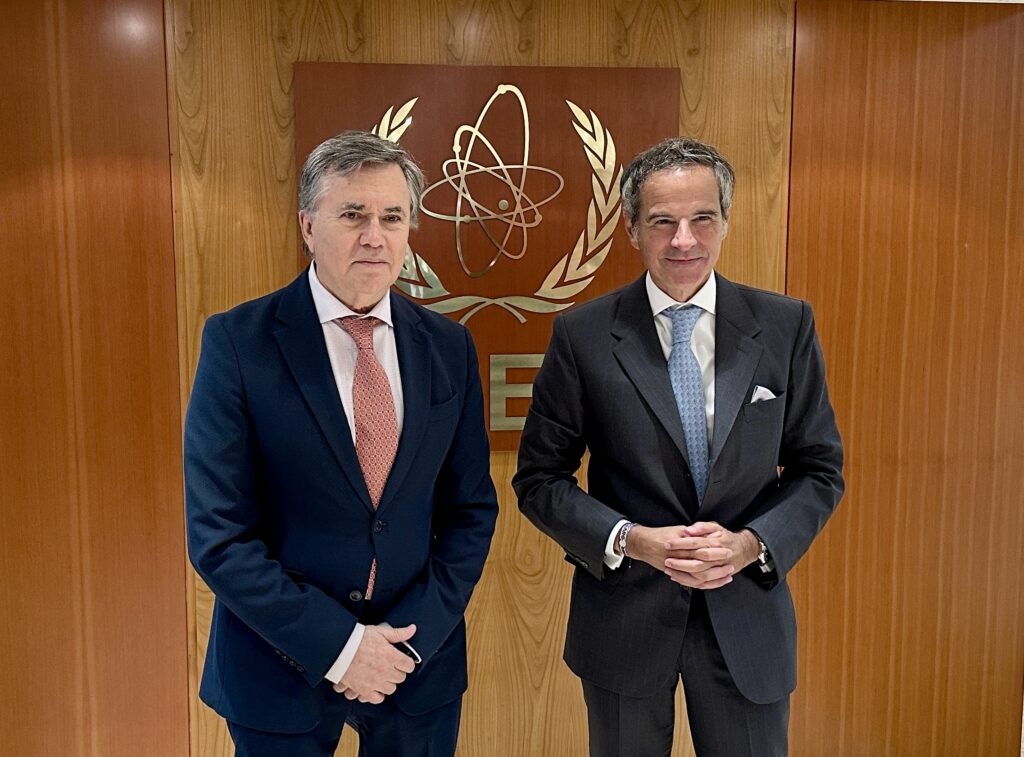Sharing Best Practices with Uruguay

Canada, Dr Audia Barnett, Representative IICA,
H.E. Martin Vidal Ambassador of Uruguay in Canada
An in-depth assessment of various significant impacts of the world’s livestock sector on the environment stated that global production of meat is projected to be more than double from 229 million tonnes in 1999 to 465 million tonnes in 20501. The environmental impact per unit of livestock production must be cut by half, just to avoid increasing level of damage from its present level. The livestock sector is a major player, responsible for 18% of greenhouse gas emissions measured in CO2 equivalents. This sector also emits 37% of anthropogenic methane (with 23 times the global warming potential of CO2). As a consequence of these environmental concerns, many cattle producing countries in the hemisphere are looking for various ways to monitor and control the production of methane by ruminants. Novel methodologies for expanding the knowledge base of researchers, farm planners and policymakers while developing sustainable environment conditions for the livestock sector are therefore key.
Recognizing that Canada and Uruguay are major producers of livestock in the hemisphere, the IICA Delegation in Canada in conjunction with the Embassy of Uruguay in Canada and the Alberta Ministry of Agriculture and Forestry, hosted an information session on “Methane Emission in the Livestock Sector: Minimizing the Environmental Footprint to Achieve GHG Emission Targets” on May 25th, 2017. The main objective of this webinar was to share relevant initiatives performed by Canadian and Uruguayan organizations in the area of mitigation and control of methane production by cattle. The session also facilitated the exchange of information and established professional and interdepartmental links between Canadian and Uruguayan representatives for fostering collaboration in the area of greenhouse gases (GHG) in the cattle sector.
Dr. Carolyn Fitzsimmons from Agriculture and Agri-Food Canada (AAFC) indicated that as a result interventions, Canada was now producing beef with a 14% reduced carbon footprint (and 14 % less methane). Ways to decrease methane production without decreasing productivity were discussed and the importance of animal genomics, diet composition, microbial (probiotics, vaccine usages, etc.) and biochemical (inhibitors) to the reduction of GHG by the animals were highlighted.
Jim Bauer representing the Alberta based company, “Boreal Laser”, shared the company’s innovations and methodologies in the monitoring of GHG in livestock. The use of laser light technology to detect a specific gas in the air was said to have demonstrated significant success and broad applicability in the agricultural sector, with advantages being its ability to continuously monitor and analyse GHG.
The Uruguayan delegation spoke on the various policies and initiatives implemented in their agricultural sector as well as some of the challenges faced regarding climate change adaptation and mitigation.
The Webinar was considered a success by all participants and laid the foundation for future interactions between the Ministry of Agriculture and Environment in Uruguay and officials representing academia, the private sector and provincial government in Alberta.
Presentations given in this event can be found in the following link:
https://drive.google.com/drive/folders/0B2TNIKaWCvOhMmswOFU1aWx4eWs?usp=sharing










